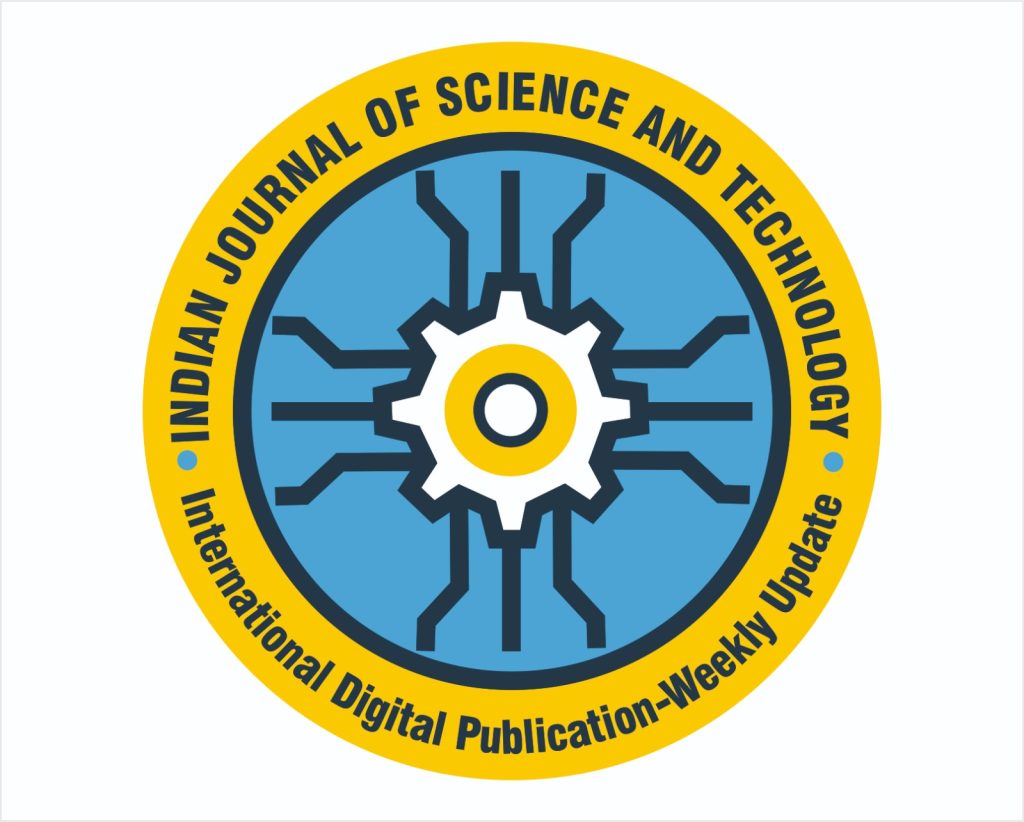Reviewer’s Responsibility
Reviewer’s Responsibility
They must ensure that:
- Reviews of the manuscript is completed and provides suitable comments for improvement.
- Promptness in notifying the editor about his inability to review the manuscript.
- Maintains confidentiality about the manuscript obtained for review, by not discussing with others.
- Standards of Objectivity preserved by reviewing the manuscripts objectively with clear views and supporting arguments and without any personal criticism.
- Acknowledgement of Sources.
- All References not cited by author should be removed. All citations should be accompanied with any previously reported observation, derivation or argument.
- The editors should be intimated for any overlap of the reviewed manuscript with any other published paper.
- Disclosures and Conflict of Interest– manuscripts having conflict of interest resulting from competitive, collaborative or any other relationships or connections with institutions connected to the paper will not be considered.
In case, plagiarism is detected during review/editorial process, such manuscript(s) will be rejected immediately and we can also consider other steps depending upon the seriousness of the case. If the plagiarism is proven after publication, such manuscript(s) will be removed from our website and appropriate announcement will be placed in this regards.
Further, Indian Journal of Science and Technology or its Journal’s Editorial Board representative can bring such instances to the notice of author’s funding agencies, author’s institutes (where they work) and to the original authors whose work has been plagiarized. Please report the plagiarism to indjst@gmail.com or indjst@iseeadyar.org
Editorial board or Publisher of the Indian Journal of Science and Technology reserves the right to verify the originality of research content submitted for publication with organization where the research reportedly carried out.
15,000+ articles
Recent Articles
Generalized Soft Multi Functions
V Inthumathi1*, A Gnanasoundari2, M Maheswari2
Cite
Inthumathi V, Gnanasoundari A, Maheswari M. (2024) Generalized Soft Multi Functions. Indian Journal of Science and Technology. 17(SP1): 1-8. https://doi.org/10.17485/IJST/v17sp1.208
Abstract
Objectives: To acquaint generalized soft multi functions and graphs. Methods: Generalized semi soft multi sets was introduced using semi closure operators and open soft multi sets. As a consequence, this study acquaints generalized semi soft multi continuous functions (Read more): with the help of generalized semi soft multi sets. Also the concept of generalized soft multi homeomorphisms are introduced via generalized semi soft multi continuous, open and closed mappings and also the thought of closed soft multi graph is introduced through the open soft multi sets and soft multi points. Findings: This study reveals that composition of two generalized semi soft multi continuous functions do not necessarily generalized semi soft multi continuous but composition of generalized semi soft multi continuous function with any of its stronger forms be a generalized semi soft multi continuous function and also several interesting results are found. Novelty: This study acquaints soft multi graph by using soft multi functions and also acquaint generalized semi closed soft multi graph.
Keywords: Generalized Semi Soft Multi Continuous Functions, Generalized Semi Soft Multi Open Functions, Generalized Semi Soft Multi Closed Functions, Generalized Semi Soft Multi Homeomorphisms and Generalized Semi Closed Soft Multi Graphs
Separation Axioms through Nano JD open set
S Jackson1*, T Gnanapoo Denosha2, P Mariappan1
Cite
Jackson S, Denosha TG, Mariappan P. (2024) Separation Axioms through Nano JD open set. Indian Journal of Science and Technology. 17(SP1): 9-13. https://doi.org/10.17485/IJST/v17sp1.252
Abstract
Objective: This study aims to introduce NanoJD- spaces (=0,1,2) using Nano JD open set and investigate their properties. Methods: To deal with the separation axioms first we need to find the NanoJD- spaces (=0,1,2)using Nano JD open set. (Read more): Findings: We can find Nano JD- spaces (=0,1,2) using Nano JD open sets. Novelty: Various characterization of these spaces are discussed. Also, the relationship among themselves and with known separation axioms are to be studied.
Keywords: Nano JD Open sets, Separation Axioms, NanoJD T 0 space, Nano JD T 1 space, Nano JD T 2 space
A New Class of Generalized Closed Sets in Pentapartitioned Neutrosophic Topological Spaces
S Jackson1*, J Sivasankar2
Cite
Jackson S, Sivasankar J. (2024) A New Class of Generalized Closed Sets in Pentapartitioned Neutrosophic Topological Spaces. Indian Journal of Science and Technology. 17(SP1): 14-20. https://doi.org/10.17485/IJST/v17sp1.113
Abstract
Objective: The motive of this research paper is to give a new notion called Pentapartitioned Neutrosophic Generalized Pre Open and Closed sets. Methods: To get the Pentapartitioned Neutrosophic Generalized Pre Open and Closed sets, PN topology is needed. (Read more): Further, there is a need to find the Pre Open and Pre Closed sets and then we use our definition to get the required objective. Findings: The Pentapartitioned Neutrosophic Generalized Pre sets give a more finer collection of weak sets. Moreover, we can find the interior, exterior, and frontier of the resultant set. Novelty: Finding the generalized part of Pentapartitioned Neutrosophic sets is a subtle work to do. So, the investigation procedure of its characterization is an interesting aspect.
Keywords: Pentapartitioned Neutrosophic Generalized Pre Closed Set, Pentapartitioned Neutrosophic Frontier, Pentapartitioned Neutrosophic Pre Frontier of a Pentapartitioned Neutrosophic Set, Pentapartitioned Neutrosophic Set
News
Blog Posts
Special Issues

The Indian Society for Education and Environment (iSEE) is a non-profit non-government organization that had its inception in 2007 with the motive of bridging the knowledge gaps among Global Youths irrespective of the economical, digital and geographical divides.
To meet the above objectives, iSEE has set itself as a pioneering agency from India initiated its own publications as GOLD OPEN Access Journals, in 2007. Since then, it has been successfully adding about 16000 quality research articles through 11 of its own journals.
The Flag-ship Indian Journal of Science and Technology, regularly published as peer reviewed weekly journal, is being indexed by Web of Science (zoological records). Indjst alone contributes over 15000 articles; it is being maintained digitally as FREE access.
Thus, iSEE becomes a pioneering entity in India which alines itself with the global policy of FREEing research information/intellectual property access from the clutches of Greedy Publishers with the motive of making money at the instance of Copyright loop-holes and Payment firewalls.
What We Do
All these made possible due to the relentless services of the Founder, Prof. Natarajan Gajendran and by the volunteering of innumerable Passionate Review Experts, along with the Dedicated Authors, who contributed quality articles to the open access pool.
The society joins hands with various Institutes and also by its own in conducting conferences and workshops for the benefit of Research Scholars. Its initiatives for online workshops on Research motivation and Research communication received appreciations, widely.
iSEE has been a self-funded so far. However important the igniting spark may be, the sustainability ultimately decides the full success of any initiatives. Already 10 of its journals got its attrition after a decade long service due to lack of funds. For the same reason, another mile-stone initiatives like Teachersdot.com (professional development for taechers) and ScholarlyNeeds (an interactive web platform for scholars) are no longer able to retain their lime lights.
Scholarly-Needs is an exclusive interactive web-based forum originally built for young researchers to learn from the peer group and to devise strategies with the help of experts to apply their learning for social problem-solving.
Thus, this is the time, individual Universities/ Institutes or Philanthropic entities to come forwards and join hands with iSEE to revive back the Golden Initiates. It could be by means of adopting those discontinued journals or making partnership publications or by digital supporting of those contents.
iSEE encourages the education of millennium youths for employability with the consciousness of ethics and environmental care.

Prof. Natarajan Gajendran
President
Prof. Natarajan Gajendran leads the Indian Society for Education and Environment as the President. He is also the Editor in Chief for the Indian Journal of Science and Technology (https://www.indjst.org) and Chief Executive Officer of Scholarly Needs (https://www.scholarlyneeds.com).
He has held and managed a number of roles with flying colours in various research organisations and educational institutes in India as well as abroad. Some of his notable positions were:
Adjunct Faculty in University of Madras
Founder Director of Pearl Academic Leadership Institute (PALI)
Director of Curriculum Development & Review and the Head of Department (Botany) at Eritrea Institute of Technology, East Africa
Visiting Scientist, Japan
Scientific Officer at Indira Gandhi Centre for Atomic Research (IGCAR), Kalpakkam, and Bhabha Atomic Research Centre (BARC), Mumbai. India.
PhD research supervisor at Madras University
His impeccable service has been recognised by awards from several granting institutions including
Best Teacher Award – Tamizhaga Institute of Educational Research and Advanced Development
Hiroshima International Care for the Radiation Exposed (HICARE) – International organisation, Japan
Technical Excellence Award – Bhabha Atomic Research Centre (BARC)
Prof.Natarajan Gajendran was an exceptionally proficient scholar and bagged scholarships and distinctions throughout his educational journey. He holds a PhD and MPhil degrees from the Centre for Advanced Study (CAS) – the University of Madras, Masters degree from RKM Vivekanandha College – University of Madras, and Bachelors degree from Government Arts College, Thiruvannamalai.
Google Scholar ID: https://scholar.google.com/citations?user=VQ3X0HcAAAAJ&hl=en










